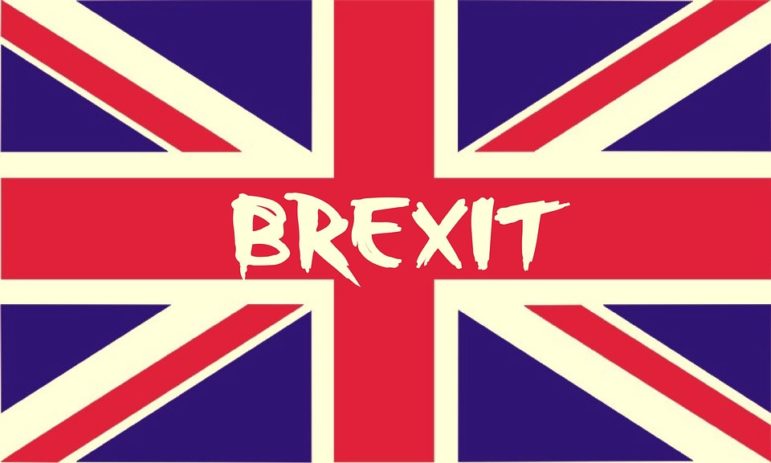
June 24, 2016; New York Times
Now that Brexit is the law of the land, there are a million details to follow, but the broader implications for Europe, Britain, the U.S., and the global economic system aren’t so clear. Jim Yardley’s analysis in “Populist Anger Upends Politics on Both Sides of the Atlantic” attempts to put some of the forces that supported Brexit into a social context.
Yardley says that the West was “stunned” by the British vote in favor of leaving the EU. Stunned, maybe, because, as with the advent of Sanders and Trump in the U.S., journalists had all drunk the Kool-Aid of post–World War II corporate globalization. Thus, in their reactions to Brexit, most journalists failed to understand that Brexit signals a paradigm shift in the evolution from the nation-state to the global state. Jim Tankersley, writing in the Washington Post, does get it when he writes, “Now the question is whether the movement will ultimately push the world into a more Western-worker-friendly form of globalization—or a full-fledged retreat to protectionism.”
For now, populists on both the right and the left are generating the energy for the changes flowing from Brexit. Here’s the populist dilemma: being against the status quo doesn’t create change. The 19th-century populists in the U.S. (white, rural, Southern) who opposed the railroad monopolies and currency manipulation by the banks were unable to enact much change. By contrast, their successors, the Progressives of the early 20th century, were a broadly based, bipartisan movement that cut across class and cultural boundaries and laid the foundation for the modern welfare state. Today’s progressives need to honor “identity” but practice inclusion.
With only foggy outlines of the new reality, social practitioners (planners, policy makers and activists) are wrestling with the “symptoms” of that change: immigration, inequality, impunity, and identity. None of these symptoms exists in isolation from the others. Each is related to the others as both causes and effects. For pundits and practitioners, there are no bullet points in a chaotic environment, with the consequence that addressing one factor in isolation will most likely deliver unintended consequences.
Sign up for our free newsletters
Subscribe to NPQ's newsletters to have our top stories delivered directly to your inbox.
By signing up, you agree to our privacy policy and terms of use, and to receive messages from NPQ and our partners.
Failure to address immigration rationally leads to irrational reactions. As a purely “economic” issue, immigration could be managed. After all, Reagan succeeded in welding a coalition of business and political interests to create immigration reform in the 1980s. But, inflamed by demagogues using the identity politics of a shrinking white “majority,” and uninformed of, yet perhaps influenced by, significant legal immigration occurring for decades, the politics has become intractable in both the U.S. and Europe. The fact of immigration from poorer to richer countries is inevitable. This economic tide is made worse by climate change, a glut of unemployed young people, and demagogues bent on ethnic realignment in the thrown together states of the 19th-century European colonialists. Cool heads who can move the discussion back to economic realities are badly needed to foster migration to the aging countries of Europe that need young workers and fostering local development to keep other young people at peace and employed at home. Both will defuse, but not eliminate, nativist resistance.
Failure to address economic inequality fuels populist resentment that supports radical or reactionary actions. No one is unaware of the economic inequality that exists both within and between nation-states. Economic inequality creates clusters of citizens who are “left behind” by overall economic development. Last week in Wonkblog, Emily Badger nailed the problem of the ‘left behind,” but she’s wrong to think that these demographic differences are immutable. These clusters can be based on geography, demography, occupation, or housing tenure, and most likely are mixtures of all these factors. The big story of the “hollowing out of the middle class” in the U.S. is actually a statistical abstraction that includes miners in West Virginia; displaced industrial employees in Illinois; overeducated, debt-stricken, underemployed Millennials; aging tech workers in Silicon Valley; and traumatized youth in America’s inner cities. Each of these clusters has its own issues and channels of expression, but all are about discontent. For electoral purposes, forging this multifaceted discontent into a political movement is the ambition of both the Sanders and Trump campaigns. Governance, on the other hand, involves moving the “left behind” clusters towards economic security in order to mitigate the impact of their angry resistance.
Persistent impunity by the bureaucratic “meritocracy” creates a sense of desperation, especially in “left behind” communities. There are a million examples of bureaucratic impunity, but let’s focus on two in the news: the acquittal and dismissal of charges against Baltimore police and the “War on Coal.” Politicians (and bureaucrats) must pay attention to their constituents and take their feelings into consideration, rather than trying “rule by fiat” or “majoritarian tyranny,” as the conservative press suggests.
Identity politics is a refuge for “populists” because it’s angry, local, and simple. With the new reality of globalization firmly entrenched, nativism is all that’s left of the nation-state. Back when local communities were cobbled together into nation-states in the wake of the Industrial Revolution, there were broadly shared economic opportunities. In contrast, globalism has created the “left behind” communities, which are disenfranchised by inequality and impunity and seek refuge in a mythical past of ethnic purity and local autonomy. Given the failure of national parties to address fundamental issues of economic inclusion, identify politics is often the only vehicle for political expression for the “left behind.” One of the watchwords of the 21st century is “non-state actor.”
Then, there’s the Internet. Without the instant presence of the Internet, global states are impossible to imagine or manage. At the same time, the Internet, and particularly social media, makes every non-state actor into a global player. There are striking recent examples of how “left behind” minorities, like the House Democrats, can send their messages outside of government-sanctioned channels. Manuel Castells tells us, “If there is an overwhelming theme, a pressing cry, a revolutionary dream, it is the call for new forms of political representation, deliberation, and decision-making.”
—Spencer Wells













